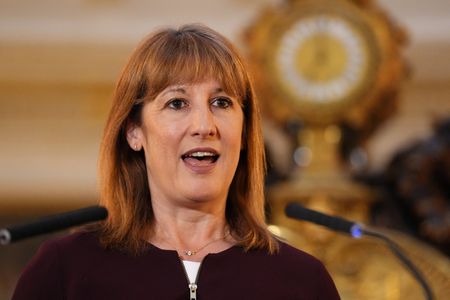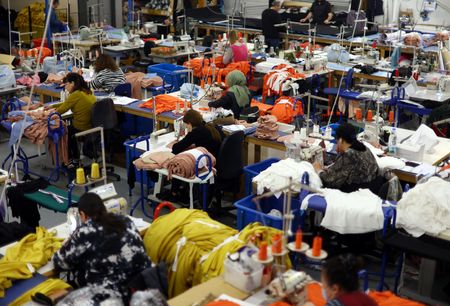By Leigh Thomas
PARIS (Reuters) – France’s pensions system will steadily sink deeper in the red in the coming decades despite a 2023 overhaul to keep it afloat, adding nearly half a trillion euros to the country’s debt burden, the public audit office said on Thursday.
Prime Minister Francois Bayrou had asked the Cour des Comptes to shed light on the system’s finances for unions and employers, who are renegotiating changes to the deeply unpopular reform, which raised the retirement age two years to 64.
The audit office’s dire assessment dampens arguments in favour of rolling back the 2023 reform as some unions and opposition parties on the left and far right want to do.
President Emmanuel Macron’s signature reform sparked weeks of protests at the time and depleted his political capital as the government had to use special constitutional powers to bypass the parliament, where lawmakers would have rejected it.
The audit office’s head Pierre Moscovici said France could ill afford to scrap the reform, which would cost 13 billion euros ($13.5 billion).
“If you think that (the 2023 reform) is sufficient, the answer is no. It will not be enough to meet future financing needs,” Moscovici told journalists as he presented the much anticipated report.
The 2023 hike in the retirement age, which still allows the French to stop working earlier than in most other EU countries, would help keep the pension system’s funding shortfall stable until 2030 at around the 6.6 billion euros expected this year.
But starting in the next decade, the pensions deficit would steadily grow to 15 billion by 2035 and balloon out to 30 billion euros by 2045 as the number of pensioners increases, the audit office said.
The accumulation of funding deficits would by 2045 add 470 billion euros to France’s already considerable public debt burden, the audit office estimated.
The size of the deficit has been the subject of contention with Bayrou saying last month that the shortfall between contributions paid into the system and money paid out ran as high as 45 billion euros, disregarding subsidies and transfers to narrow the deficit.
Moscovici brushed aside such approaches, saying there was no “hidden deficit” as any shortfall one way or another ended up being absorbed by the government’s finances and therefore the public debt.
Bayrou, a long-time centrist ally of Macron, has said all options are on the negotiating table between unions and employers, including the retirement age, as long as any changes do not leave the pension system deeper in the red.
He agreed to re-open the potentially explosive subject of pensions as he aimed to win tacit support from Socialists to survive votes of no confidence tabled by other opposition parties eager to topple him.
The audit office did not give explicit policy recommendations, but it made clear that raising the retirement age would have the biggest positive impact, estimating that lifting it to 65 would bring in an extra 17.7 billion euros.
($1 = 0.9604 euros)
(This story has been refiled to add the dropped words ‘who are,’ in paragraph 2)
(Reporting by Leigh Thomas; Editing by Lincoln Feast.)











